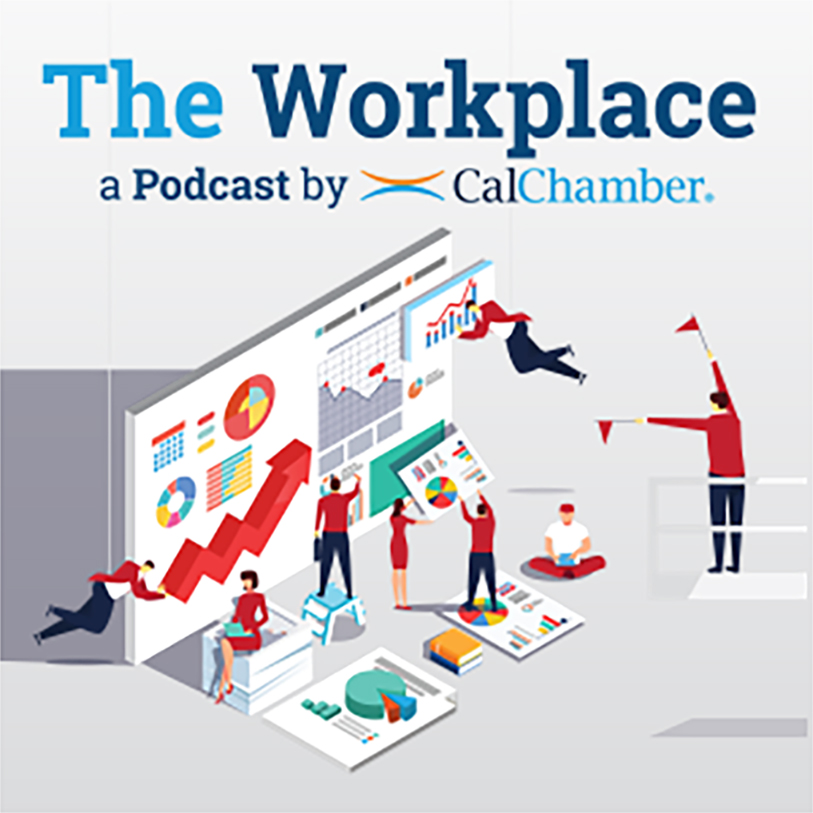In this episode of The Workplace podcast, CalChamber employment law expert Matthew Roberts and CalChamber policy advocate Ashley Hoffman discuss four current state legislative proposals that affect the workplace: an unpaid bereavement leave mandate; “protected class” expansion in the Fair Employment and Housing Act; expansion of the number of sick days provided under the California paid sick leave law; and a new COVID-19 supplemental paid sick leave law.
Bereavement Leave
In California, employers may choose to offer bereavement leave, but providing this leave is not mandatory, Roberts says. A new bill proposed in the Legislature would change that, mandating bereavement leave.
The bill, AB 95 (Low; D-Campbell), was labeled a job killer by the CalChamber as there are a lot of concerns about placing yet another leave on businesses given the financial devastation caused by the COVID-19 pandemic, Hoffman says.
After working with Assembly Member Evan Low’s office, Hoffman expects new amendments that will make the leave unpaid and not included in the Labor Code, so it will not be subject to the Private Attorneys General Act (PAGA). Moreover, employers would be able to request documentation from the employee, and employers will be allowed to have their own voluntary policies.
“So, if you already offer five days, not a problem. If you offer, you know, two, you’re going to have to increase that up to five. If you offer some paid days already, the bill basically just says that you would have to follow that policy and give them those paid days. If that gets you up to less than five days, the remaining days can be unpaid, per this new law,” she explains.
‘Protected Class’ Expansion
Another 2021 job killer bill that is returning this year is AB 1119 (Wicks; D-Oakland). The bill adds a new protected class called “family responsibilities” to the Fair Employment and Housing Act (FEHA).
The CalChamber’s biggest concern, Hoffman says, is that the class is broadly defined to include anyone who has a child under the age of 18, as well as anyone who has someone living with them that they provide some sort of care for, and not limited to a family member.
“… our big concern here is that this is going to open the floodgates for litigation, because it’s going to encompass so many different employees,” she tells Roberts.
Paid Sick Leave
The Healthy Workplaces, Healthy Families Act, also known as the California paid sick leave law, took effect in 2015, mandating that three days of paid sick leave be provided to workers in California, Roberts explains.
Over the last few years, several proposals have sought to increase the number of days provided to five days or 40 hours, Hoffman says. Assembly Member Lorena Gonzalez introduced AB 995 (Gonzalez; D-San Diego) last year, which would increase the number of mandated paid sick leave days, but because she resigned at the beginning of this 2022 session, it’s uncertain what will happen to this bill.
Under the rules, another legislator can come in and request permission from the Assembly Rules Committee to take over that bill, Hoffman explains. Because it did not make it out of the first house last year, the bill would also have to be passed by the end of this month.
“It’s something we’re watching very closely,” Hoffman says. “But even if it doesn’t happen this year, I would expect this conversation, especially in light of the pandemic, to resurge, and people to ask, ‘should we be increasing three days up to five days?’”
COVID-19 Supplemental Paid Sick Leave
California’s COVID-19 supplemental paid sick leave law expired on September 30, 2021, and so far, nothing has replaced it. Roberts asks Hoffman: is there any work at this point to revive it?
Hoffman replies that earlier this month, Governor Gavin Newsom issued a press release ahead of his budget proposal, calling on the Legislature to enact a new COVID-19 paid sick leave law. There’s been a lot of discussion and many groups have chimed in as to what they think is appropriate to be in the new law, whether it should be retroactive and what the deadlines should be.
Something will likely be proposed in the next week or so, and it will likely be voted on quickly in order to enact this as soon as possible, she says.





